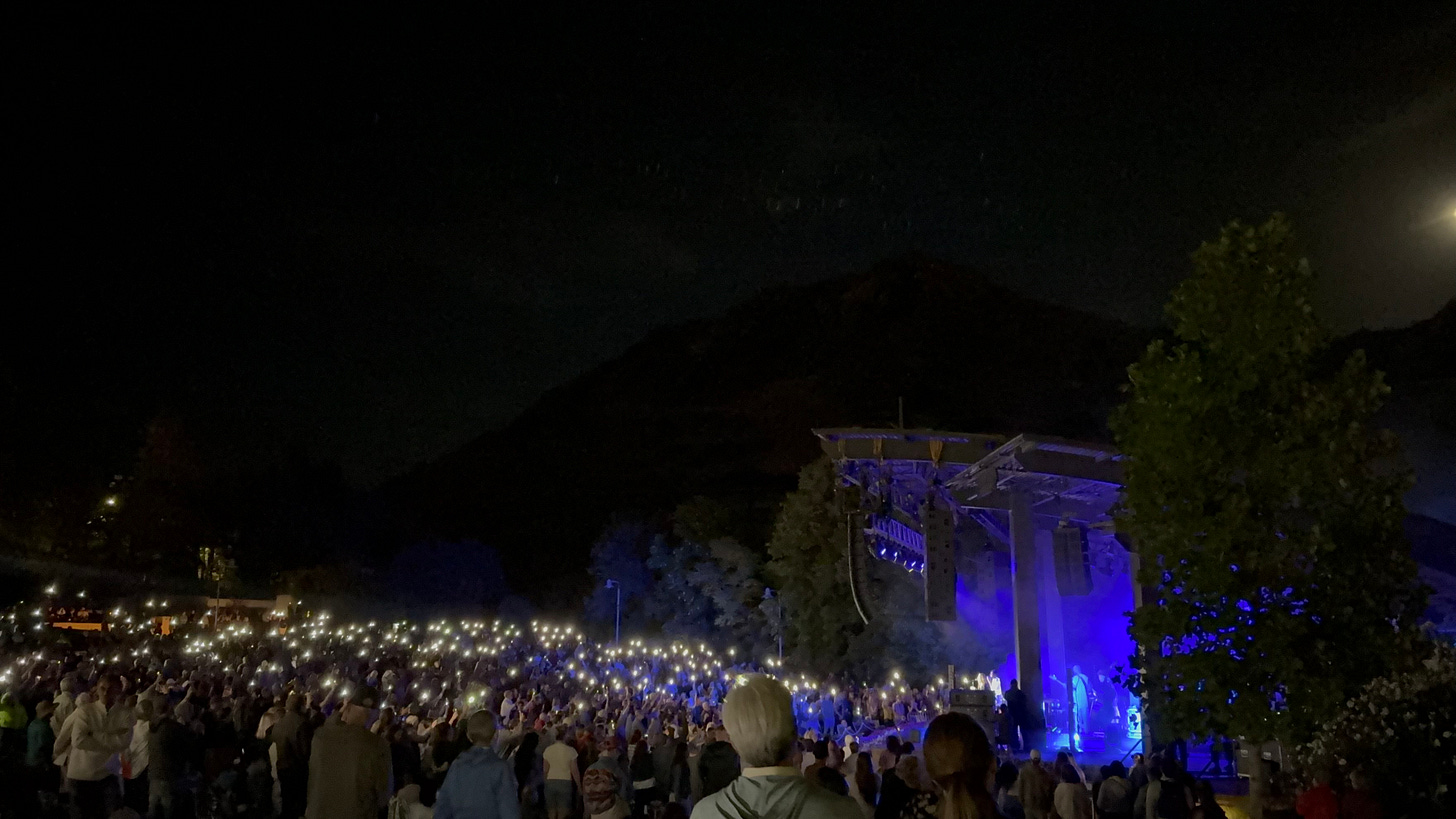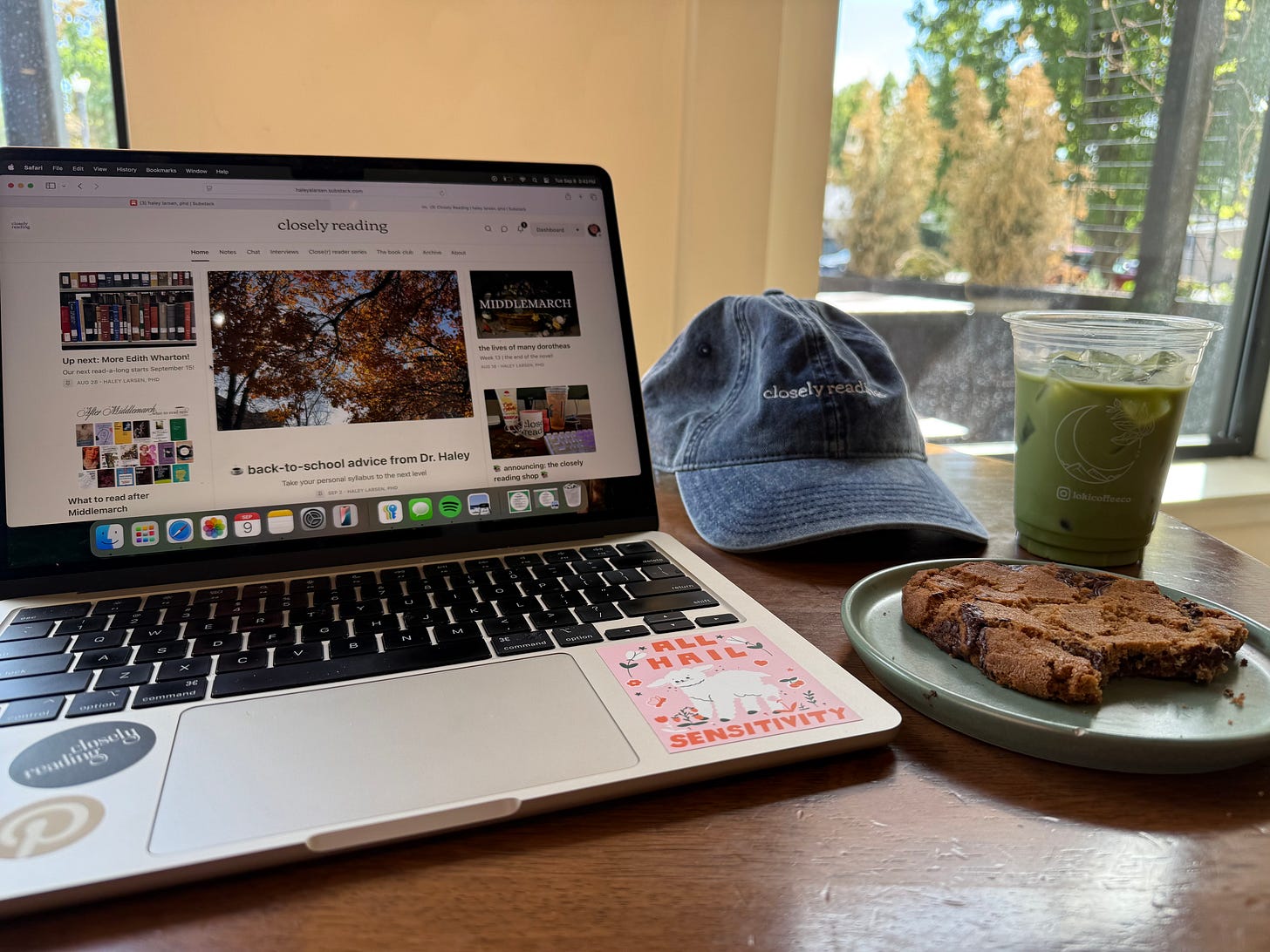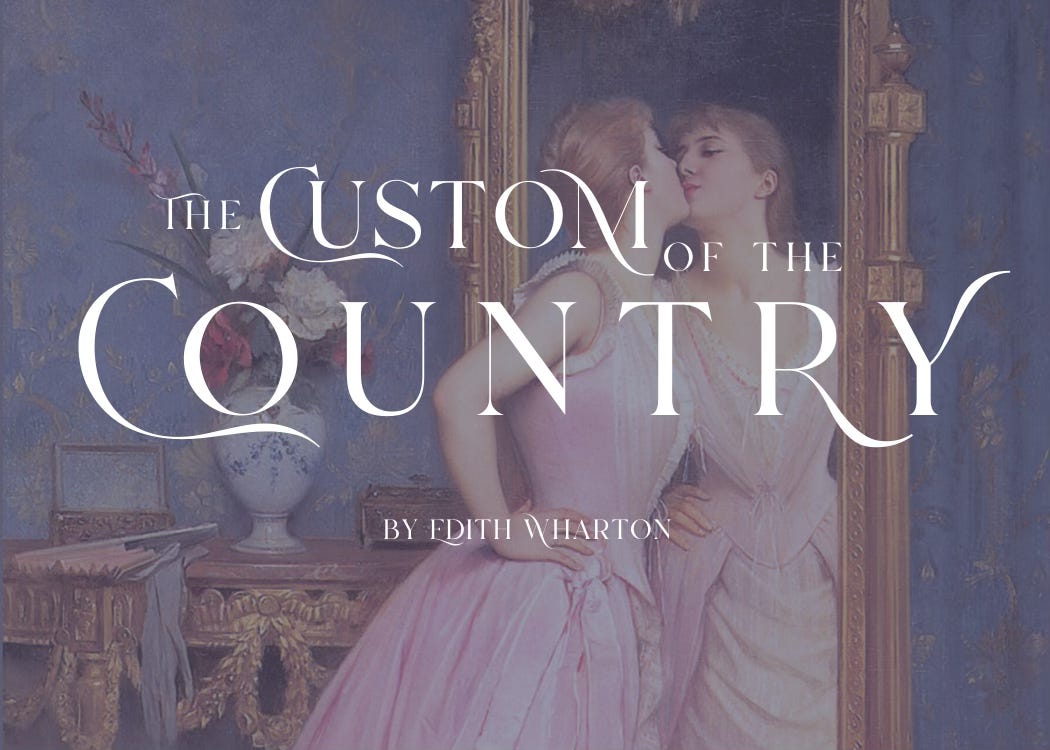here comes another read-a-long!
Diving back into Edith Wharton + what Anita Brookner has to say about a 1913 classic of American Naturalism
hi friend :)
I have had a whirlwind few weeks. From a wildly busy month at work full of very late nights to my brother’s wedding (and all the attendant celebrations and fun), plus some final summer fun with my honey, I’ve felt pulled in a dozen directions at once.
Last night, we sat at our final concert of the summer season, a breezy outdoor evening with Jon Batiste on his Big Money tour. It was an outstanding show. It was also finally cool enough for a sweater. We took our books with us to read on the lawn before the show started and had a grand time together. (I took Your Brain on Art which I’m reading with some of my work colleagues.)
We had a fantastic time!
And as soon as I got home, I was struck with a single thought: “okay, I can’t wait to get back to closely reading!”
So here I am this afternoon, writing to you, with a chocolate chip cookie and an iced matcha — and of course, my trusty closely reading hat. I thought I’d share some thoughts on our next read, The Custom of the Country, especially pertinent if you’ll be reading with me over the next while. (I hope you are!)
✨ Meeting the upwardly mobile Undine
In the introduction to my edition of The Custom of the Country, (a greenish Penguin classic I snagged at a used bookshop because it matches my deeply worn copy of The House of Mirth), Anita Brookner provides an introduction.
She writes,
“The Custom of the Country is about the upwardly mobile and what eventually puts an end to their aspirations, about the unscrupulous and the entrenched, about nearly getting what one wants and being rendered powerless by the forces of society that lie in wait for those who overreach themselves.”
For readers of The House of Mirth and The Age of Innocence, this suggestive overview of the novel’s key tensions will feel very familiar. After all, The House of Mirth’s Lily Bart is singularly motivated by the wealth — and social movement upward — that will stabilize her in the lifestyle to which she is accustomed. In The Age of Innocence, Newland Archer likewise struggles against painful aspirations, not for wealth but for his own sexual and psychological desires to be met; he ultimately finds himself “rendered powerless” by a society bent on keeping him in check.
So what makes The Custom of the Country so special?
I’d argue it’s Undine Spragg, our main character, who is a far cry from the other Wharton heroines you may know. As Brookner puts it, “Undine lacks a tragic dimension.”
We’ll be finding out what that means for Undine — and for her social mobility — as we read together. Key to your reading experience is something else Brookner points out:
“Edith Wharton is by no means contemptuous of Undine and her ambitions.”
You may be tempted to be contemptuous yourself, and this will be one of the novel’s most rewarding challenges — especially as we read closely together. Be honest in your reactions to Undine, a thoroughly unlikeable woman from most angles. But be mindful of what that unlikeability may be doing as an intentional narrative force.
Without any further hints or spoilers, I’ll leave us to the reading experience…
📖 We start reading Monday, September 15
That’s this upcoming Monday! (Can you believe it’s September?!)
If you’re new to my read-a-longs, we start things off slow by just reading the first chapter during our first week. The goal is that you’ll read it at least twice (or many, many times) without wading deeper into the text until week 2.
I know, I know: hold off!
My hope for you is that one week of close study with a single chapter helps you set an inspiring tone for the rest of the weekly assignments, where we tackle a longer batch of chapters together. By spending a sustained week with a single chapter, you give yourself a chance to dig into the way that the first sentence — and the first chapter — of literary works like this one are a whole universe unto themselves.
Literary scholars tend to use the word “microcosm” (literally: little cosmos or mini universe) to talk about the first sentence and first paragraph of literary works. They’ll ask questions like:
How does the first sentence of the novel function as a microcosm of the entire story?
Or, the way I like to as it, is how does the first sentence work like a promise? What promises does the first sentence make about the book we’re about to read?
Next week, I’ll share a very close reading of the first sentence of The Custom of the Country with you to help kick you off into your own reading experience of the novel. (Ideally: you’ll save that essay until after you’ve had a chance to read the first sentence yourself and take a few notes. I’ll remind you to do that next week. Don’t worry!)
Every Monday, I post a summary of the previous week’s reading along with analysis and close reading techniques (modeling new things for you to think about or test on your own), as well as answers to whatever questions rolled into our question form that week. I also remind you what to read during the upcoming week. So far, this has been a great process and we’ve had fun staying in lock-step with each other as we read.
Reading the first sentences of great novels
I’ve published a lot of essays and guides here about closely reading — and especially about closely reading the first sentence of books. Here are links to those posts, if you want to see the types of analysis I’ll be encouraging our reading group to do during Wharton. (Most of these are available in the archive, to paid subscribers.
Free readers can unlock one free post, or upgrade to paid to access everything!)
Analyzing the weird first sentences of Yonnondio: From the thirties (Free to read!)
Reading the first lines of Shirley Jackson’s spooky novels (Free to read!)
A step-by-step peek into my reading process with The Road
WHARTON CONNECTION: Closely reading the first sentence of The Age of Innocence
To access all of these posts, upgrade to paid at any of the tiers below:
$15 per year
Get a full year of Closely Reading for $15. Available to all readers, all the time.$25 per year
Get a full year of Closely Reading for $25. Available to all readers, all the time.$50 per year
Get a full year of Closely Reading for $50. Available to all readers, all the time.
💌 The links you need
The schedule is available here (and I’ll also include it at the end of today’s essay, for ease of reference).
I’m also sharing our FAQ link. This link takes you to an open access Google Form where you can pose your questions about the novel and each week’s assigned reading. I answer the questions asked here to the best of my knowledge and skill, and work to also provide you with resources to explore further!
I don’t answer the questions posed in the comment thread each week, because those are often rich sites of discussion right in the thread, and you may prefer to have a larger discussion on your question than to ask it directly to me. So, use both resources available to you to engage with the novel and our group discussion and with me as it makes sense for you!
—> Your form to ask away is right here!
Each week, I’ll update a dedicated FAQ page for the novel you can review along with each week’s summative post and analysis. :) It’s one of my favorite things. You can review the Middlemarch FAQ to see how it works.
—> Browse all my Edith Wharton reading recommendations
🥳 I’m so excited to get into another amazing read with you!
If you’ll be reading along, introduce yourself in the comments and get to know your fellow readers! I’m looking forward to next week.
On Monday, September 15, look for:
All subscribers: The introduction essay with first sentence analysis + a list of questions to ask yourself
Paid subscribers: Watch your Substack chat for this read-a-long! I’ll be posting questions for the group each week.
Into the comments we go…
‘Til next time, happy reading!
📚 Our reading schedule 📚
Week 1: Monday, September 15
Read Book 1, Chapter 1
Week 2: Monday, September 22
Finish Book 1 (Chapters 2 - 10)
Week 3: Monday, September 29
Finish Book 2 (Chapters 11 - 20)
Week 4: Monday, October 6
Finish Book 3 (Chapters 21 - 30)
Week 5: Monday, October 13
Finish Book 4 (Chapters 31 - 36)
Week 6: Monday, October 20
Finish Book 5 (Chapters 37 - 46, end of novel)
Week 7: Monday, October 27
Read the Sheila Liming article (linked below)
Week 8: Monday, November 3
Read the Margaret Toth & Regina Martin articles (linked below)






My personality and ambitions are just like Undine's. (I've finished the book, so I'm not saying this without knowing what that can lead to!) She's in my Resting B*tch Face Heroines club with Anna Karenina, Scarlett O'Hara from Gone with the Wind, Kristin Lavransdatter, and Becky Sharp from Vanity Fair. They have the "I will get what I want and I don't care how it hurts other people" ambition and drive.
When I recommended Gone with the a Wind to a friend, he texted me, "Scarlett is the most horrible character in fiction." At the same moment, I texted him, "Scarlett is just like me!" 🤣 I don't presume to say this is a good thing about me, but know thyself!
Often when I read these books and see exactly the way I think in print (where how other people might be affected by my single-minded pursuit of my goals doesn't occur to me in the least), it makes me glad to be Catholic and I head out to confession!
Without seeing these characters, I could be just as uncaring about other people and not notice. Or just be surprised when other people tell me my actions hurt them. Because of these excellently drawn literary women (when I read Anna Karenina I said, "How did Tolstoy see inside my head??!") I can intentionally choose to care about other people, since it doesn't naturally occur to me to do so.
I can't wait to start!